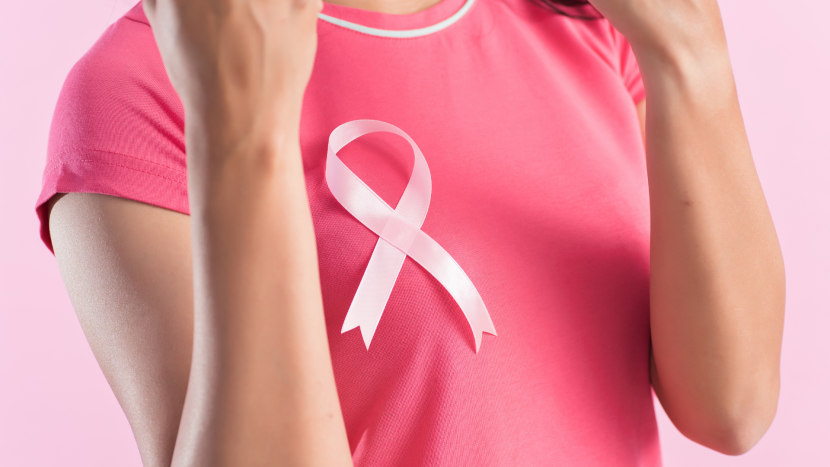Breast cancer is rising at an alarming rate worldwide, with 1 in 20 women likely to face a diagnosis in their lifetime. The World Health Organization (WHO) warns that if current trends persist, annual breast cancer cases could reach 3.2 million by 2050, leading to 1.1 million deaths each year.
According to a WHO-aligned ICMR study published in The Lancet, researchers analyzed trends for 36 cancers, including breast cancer, across different age groups and genders in India. The findings revealed that three out of five cancer patients in India succumb to the disease after diagnosis, with women facing a significantly higher burden than men.
India is witnessing a sharp rise in breast cancer cases among women in their early 40s, about a decade younger than Western patients. Doctors report that 90% of cases stem from lifestyle factors such as obesity, alcohol consumption, smoking, delayed pregnancies, and insufficient breastfeeding, while only 5 to 10% are genetic. Experts caution that these aggressive, rapidly growing tumors are increasing in frequency, potentially driven by contemporary lifestyles, environmental pollutants, and improved diagnostic methods. The message is clear: prevention through healthier choices and early screening could save lives.
While we cannot completely prevent breast cancer, research shows that many risk factors are within our control. Simple lifestyle changes, such as maintaining a healthy weight and staying active, can significantly lower your chances of developing the disease. The power to reduce your risk may be in your hands.
Ways to help reduce your risk of breast cancer

While healthy habits like maintaining a healthy weight, breastfeeding (when possible), and staying active may help lower breast cancer risk, no specific diet, exercise plan, or “miracle” food can guarantee complete protection. Even people who follow all the right steps might still develop breast cancer due to factors beyond their control. However, these evidence-backed strategies not only may reduce breast cancer risk but also help protect against other serious conditions, such as heart disease and diabetes:
1. Maintain a Healthy Weigh: Excess body fat, especially after menopause, increases breast cancer risk. Fat tissue produces estrogen, and higher estrogen levels can contribute to breast cancer development. A BCRF study showed that women over 50 who lost at least 10 pounds and kept it off lowered their future breast cancer risk by 32%. Maintaining a healthy weight through proper diet and exercise plays a key role in prevention.
2. Engage in Regular Physical Activity: Regular exercise helps in weight management and may lower breast cancer risk by reducing inflammation, balancing hormone levels, and boosting the immune system. Healthline recommends aiming for at least 150 minutes of moderate aerobic activity or 75 minutes of vigorous activity each week. Activities such as brisk walking, cycling, or swimming can be effective.
3. Limit Alcohol Consumption: Alcohol intake is a known risk factor for breast cancer. Even moderate consumption can increase risk, with studies showing that women who consume three alcoholic drinks per week have a 15% higher risk compared to non-drinkers. Limiting alcohol to no more than one drink per day, or avoiding it altogether, can help reduce this risk.
4. Adopt a Balanced Diet: Eating well does more than just help manage your weight—it can actually lower your breast cancer risk. Studies show that loading your plate with certain powerhouse foods makes a real difference. Focus on these nutritional champions:

- Whole grains for sustained energy.
- Nuts, seeds and plant proteins for healthy fats.
- High-fiber foods to support digestion.
- Leafy greens packed with antioxidants.
- Colorful fruits bursting with vitamins.
- Cruciferous veggies like broccoli and cabbage that fight inflammation.
On the flip side, research links these foods to increased risk and recommends limiting them:
- Processed deli meats containing preservatives.
- Animal fats that may disrupt hormones.
- Red meat in large quantities.
5. Breastfeed, If Possible: Breastfeeding has been associated with a reduced risk of breast cancer. The longer a woman breastfeeds, the greater the protective effect, possibly due to hormonal changes during lactation that delay the return of menstrual periods, reducing lifetime exposure to hormones like estrogen.
6. Avoid or Limit Hormone Replacement Therapy (HRT): Postmenopausal hormone therapy, especially combined estrogen-progestin treatments, has been linked to an increased risk of breast cancer. If HRT is necessary, it’s advisable to use the lowest effective dose for the shortest duration possible and to discuss alternatives with a healthcare provider.
7. Regular Screenings and Self-Examinations: Early detection through regular mammograms (starting at age 40–50) and self-examinations can identify breast cancer at an earlier, more treatable stage. Women should discuss with their healthcare providers to determine an appropriate screening schedule based on individual risk factors.

8. Know your family history: Many people associate breast cancer risk primarily with their mother’s side of the family, but your father’s family history matters just as much. Genetic factors like BRCA mutations can affect men and women differently, potentially influencing your risk. If you’re unsure about the cancer history on either side of your family, now is the time to ask relatives. Having a complete picture of your genetic background helps your doctor determine the best screening schedule and lifestyle recommendations for your personal situation.
9. Know your personal risk: Your likelihood of developing breast cancer depends on a mix of factors, including genetics (like BRCA mutations), family history, breast density, and past diagnoses.
If you’re at higher risk, talk to your doctor about personalized prevention strategies. Options may include risk-reducing medications, more frequent screenings, or preventive surgeries (such as mastectomy or ovary removal) to lower your chances.
Endnote
While no one can completely prevent breast cancer, you can take real steps to lower your risk. Simple lifestyle changes like moving more, eating healthier foods, quitting smoking, and maintaining a healthy weight can significantly boost your chances of staying healthy. Knowledge also protects you. Regular screenings and knowing your family history help catch warning signs early. If you have a high genetic risk, modern medicine offers extra protection, including preventive medications and surgical options. Your doctor can work with you to tailor these strategies to your unique needs because prevention works best when it is personalized to you.




